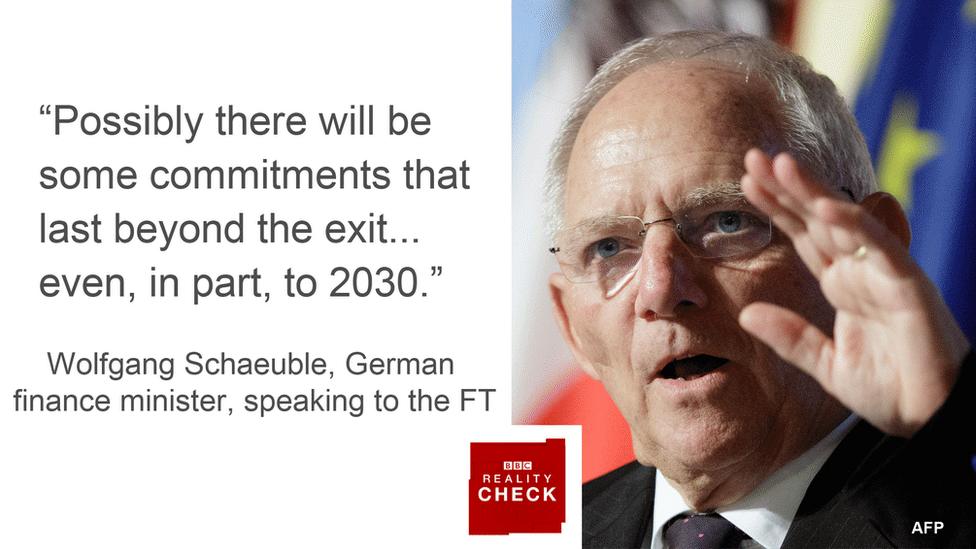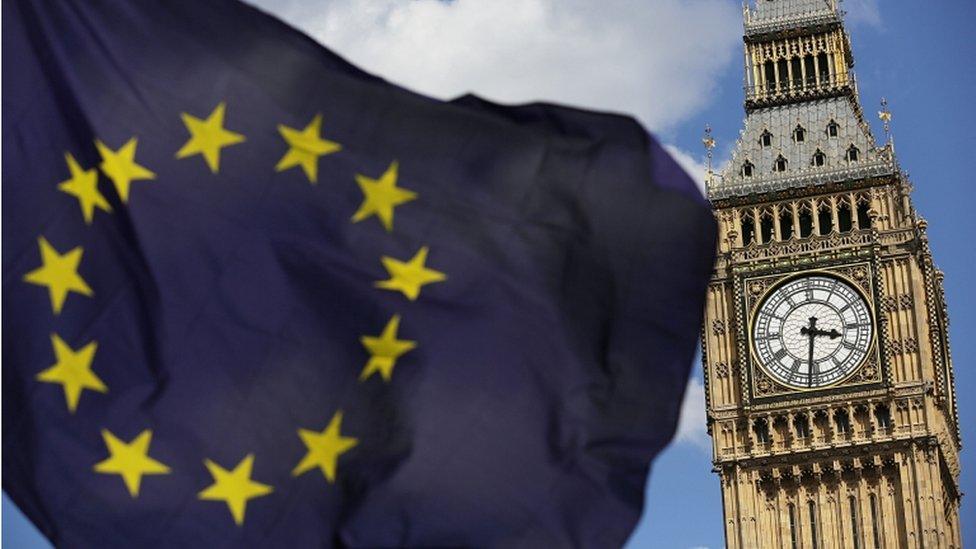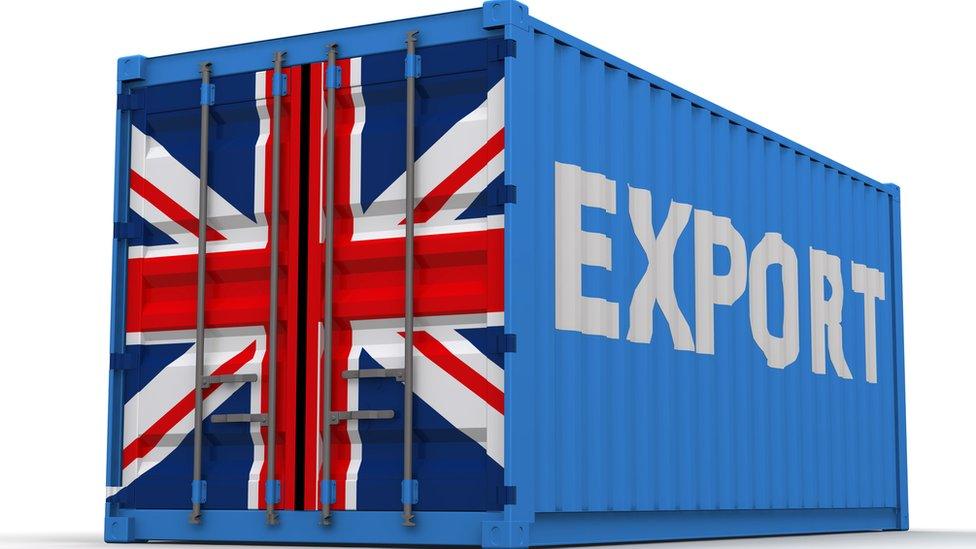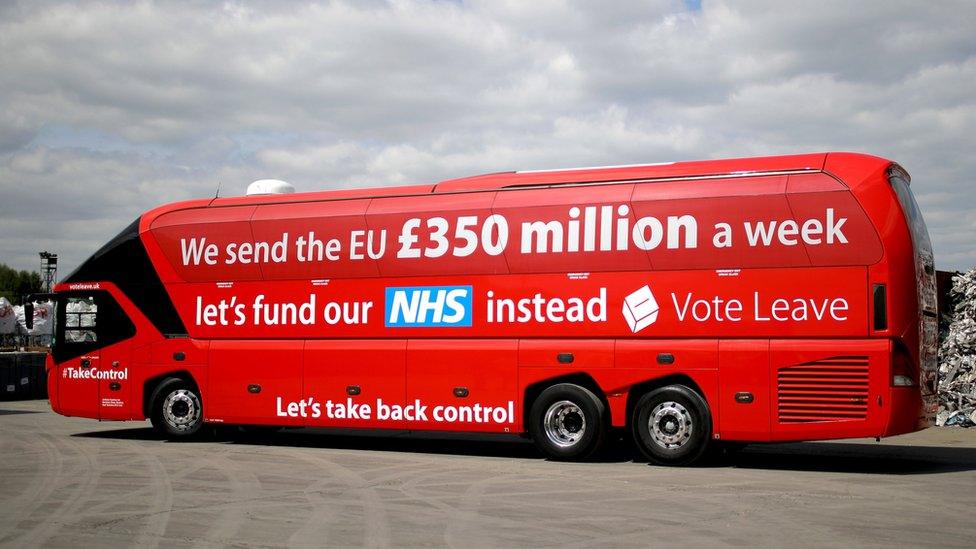Reality Check: Will we send money to Brussels after Brexit?
- Published

The claim: The UK will continue sending money to Brussels after Brexit.
Reality Check verdict: The UK's deal to leave the European Union is likely to involve a final payment. How much that is and how long the UK will get to pay it will be decided by the negotiations. Continuing payments will probably also be needed if the UK wants to continue to be involved with programmes such as EU funding for science or to retain preferential access to the single market.
In an interview with the Financial Times, German Finance Minister Wolfgang Schaeuble has suggested that the UK will have to contribute towards EU spending commitments long after it has formally left the bloc.
Whether this is the case will be decided in the Brexit negotiations, but there are different types of payments that the UK could be expected to make to the EU.
Firstly, there is likely to be a one-off "divorce bill", which is expected to cover any outstanding payment commitments from the UK to the EU budget.
The second type of potential payments relates to money that the UK could be asked for if it wants preferential access to the single market after it has left the EU.
Divorce bill
In October, the FT suggested that the UK could be presented with a divorce bill from the EU of about €20bn (£17bn). This week, it tripled its estimate to about €60bn.
Whatever the final sum, a significant part of it will be made up of the UK's share of outstanding EU budget commitments, which is money that has been committed by the EU to specific programmes but that has not yet been paid out.
The European Commission has previously likened such commitments to the payments made to a construction company, which get paid only according to the progress it has made on its work.
For example, a science research project may receive EU funding over a long period of time, well beyond the year in which the funding commitment was first made.
We do not yet know how the UK will contribute to such payments after it has left the EU. The same goes for the UK's future payments towards the pensions of EU civil servants, which will probably constitute another part of the Brexit divorce bill.
Whether or not the UK will settle the final bill in instalments over several years or through a lump-sum payment will likewise be subject to negotiations.
The European Commission told the BBC that it "will not speculate on any issues related to the outcome of the UK referendum before the notification of Article 50 is made".
Continuing contributions
In addition to the divorce payment, the UK might decide to continue contributing to the EU budget in return for certain benefits such as preferential access to the single market.
Norway and Switzerland both have significant access to the single market and they pay money to the EU for the privilege.
Clearly, if the UK decided it wanted to trade just on WTO rules then it would not have to make such contributions.
But there are other programmes such as EU funding for research or the European Investment Bank that the UK might want to continue its involvement with, which would involve making financial contributions.



- Published18 November 2016

- Published18 November 2016
- Published4 November 2016

- Published12 October 2016
